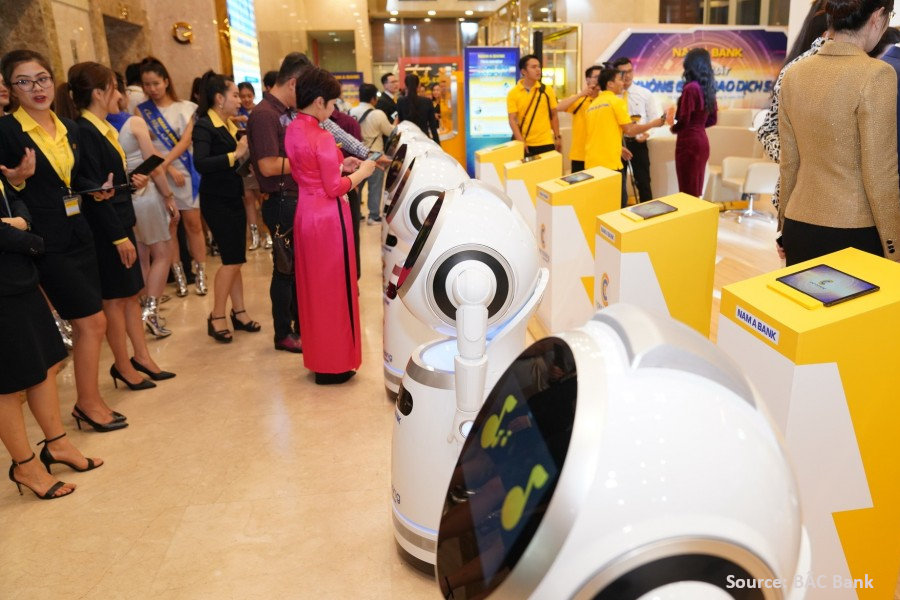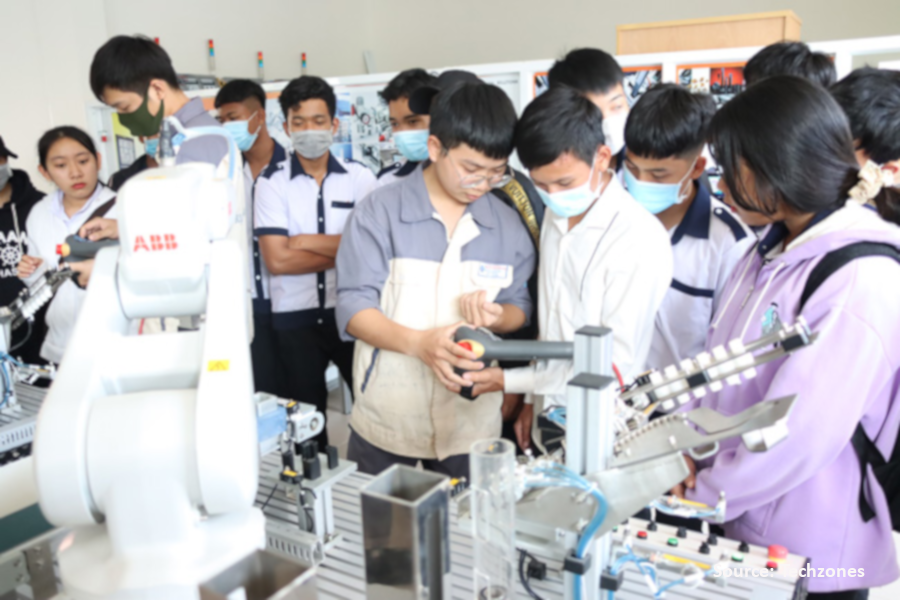Applied Machine Learning Professional

STARTS ON
- Batch 1: 26 September 2021
- Batch 2: 15 December 2021
DURATION
12 months, 4h LIVE tutoring per week + 24/7 ONLINE supports
PROGRAMME FEES
$1350, with scholarships & module-based installment (Module 1: $350; Module 2: $650; Module 3: $350)
(*) Apply before 01 September 2021 and avail an early bird tuition assistance of $135. Use code ED135ML while applying.
This programme is especially for whom?
Digial Professionals & Managers
Students & Graduates
Final year students, IT or Non-IT graduates who are looking for jobs
K-12 & College students
The Applied Machine Learning Professional programme teaches you a wide-ranging set of techniques of supervised and unsupervised machine learning approaches using Python as the programming language.
Since this programme requires an intermediate knowledge of Python, you will learn in the first module. This will provide you with the programming knowledge required to do the assignments and application projects that are part of the Applied Machine Learning Professional programme.
If you are looking to implement or lead a rmachine learning projects or looking to incorporate machine learning capability in your software application, this programme is appropriate for you.
*Assessment: Students will be given an assessment to test their math skills prior to commencement of the programme.
Top skills required by recruiters
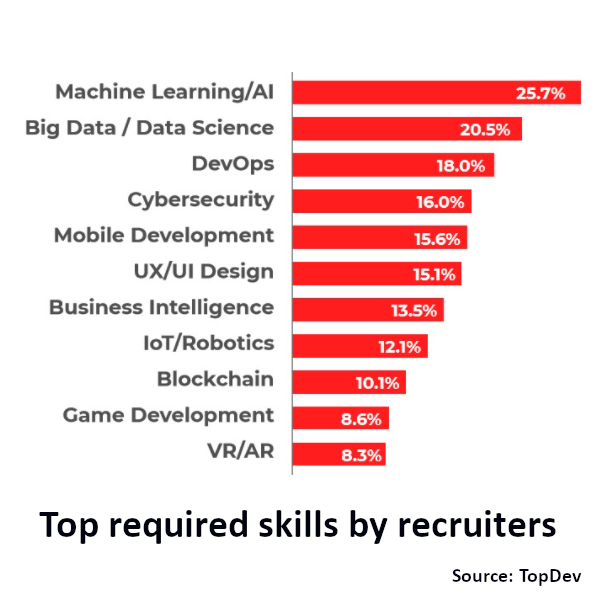
Salary for Machine Learning $1324/month
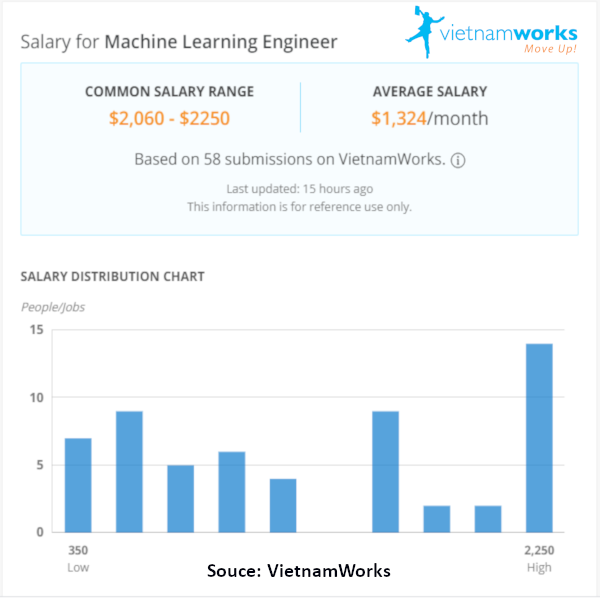
Machine Learning is essential for everyone
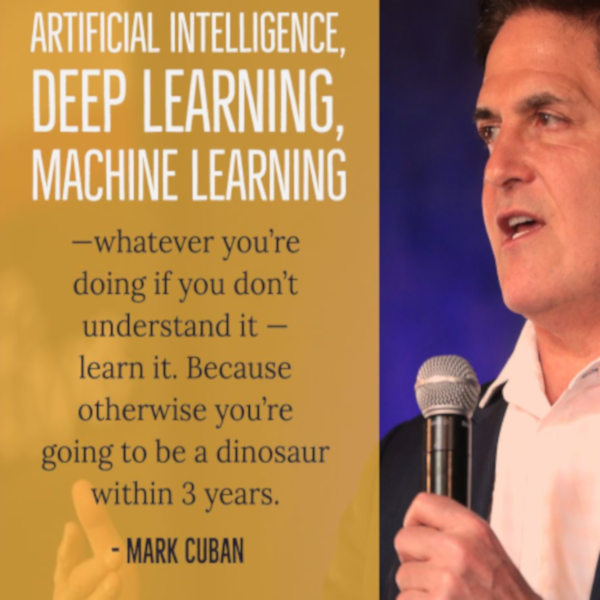
Certificate
Upon successful completion of each program, you’ll earn a digital certificate of completion.
0+
0/100
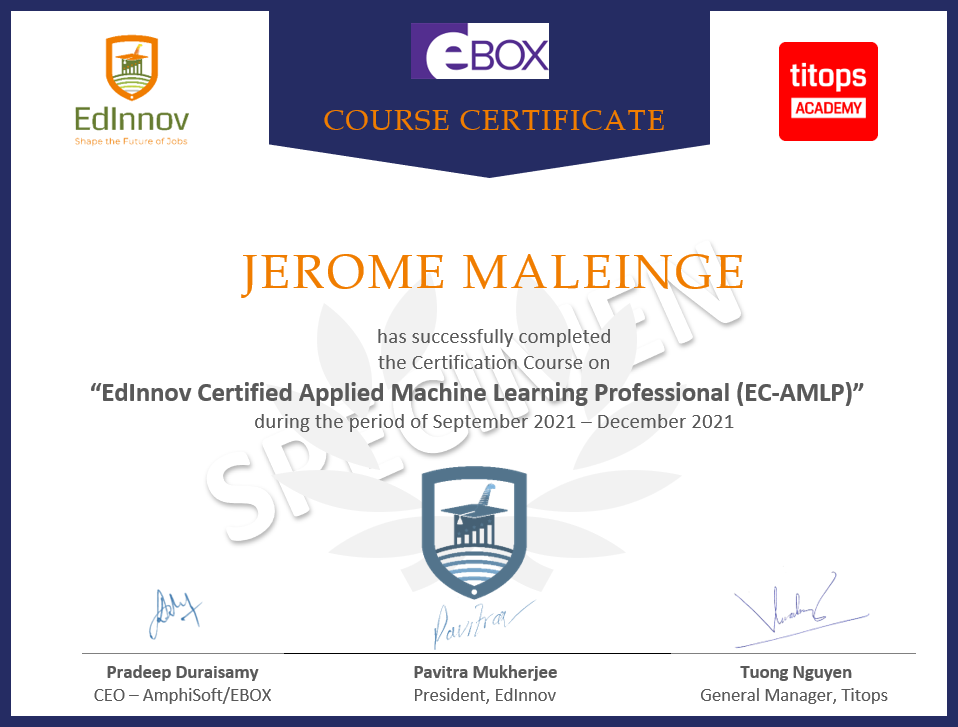
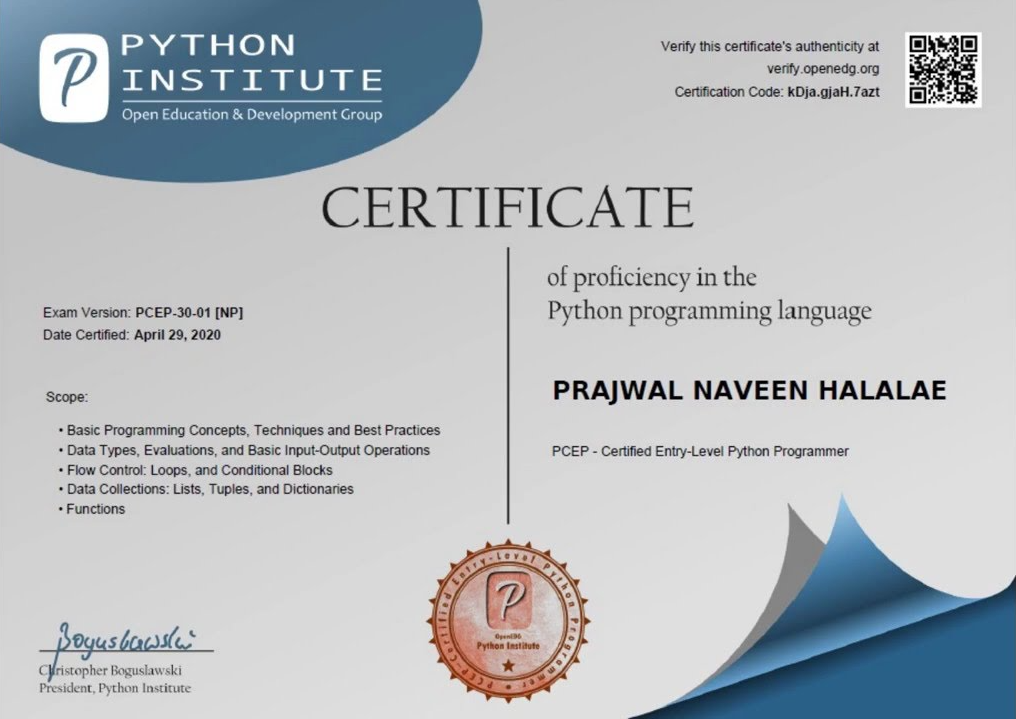
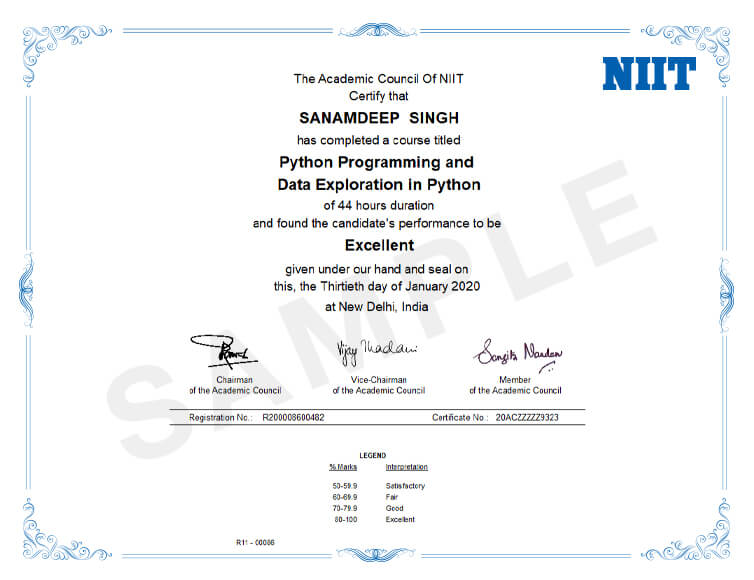
What will this programme do for you?
iLearn
iExplore
iAnalyse
iDesign
iAssess
iWork
After learning & practicing, it’s time now to raise you own problem and work on real projects. Mentors will work with you to apply to your business.
Programme Modules
Module 1 (12 weeks): Problem Solving, Data Structures and Algorithms through Python
In this module, you will learn about a framework for problem solving strategies, Conditional or Selection or Branching Statements, structure of if construct, structure of if-else construct, structure of if-elif ladder construct, structure of nested if else construct, looping constructs, structure of for construct, structure of while construct, that are often used by experts in solving problems, basic features of Python, Identifiers, Datatypes and Variables, Input and Output Statements, conditional statements,break and continue statements in Python.
In this module, you will understand the need for the sequential data structures like List, Tuple, Set and Dictionary. You will also understand how to define and process the sequential data structures through few realtime applications.
In this module, you will understand what strings and regular expressions are, how to declare a string, how a string is stored in memory and a few string functions.
In this module, you will learn to recognize the need for functions, recursion and PyTest, illustrate the different parts in writing a function with examples, and understand the how the parameters are passed to the functions using pass by value and pass by reference.
In this module you will be exposed to Date and Time related operations and functions, and how to open a file, close a file, read from a file and write to a file. These functions are useful while performing date difference, date formatting and extracting elements (mims, hours, secs, etc.) from the given date.Python provides functions like open, read, readLines, seek, write to make file handling inPython language simple.
In this module you will learn to create classes and objects of the class and to define methods, different types of relationships with classes and what is Association,Aggregation, Composition and all them for a particular functioning,multiple ways to create objects,access modifiers in python and how to interrelate the classes using these concepts.
In this module you will learn what is inheritance and different types of inheritance(Simple, Multiple and Multilevel inheritance) and Abstract classes and the necessary keywords and to implement the learnt concepts on the questions to code.
In this module you will learn what is Exception handling in Python and the classes involved in Exceptions,try-finally-catch clauses, annotations and use available annotations,to define custom annotations, Lambda expressions,scoping rules for Lambda expressions and the code level implementation of Exception handling and Lambda in Python.
In this module, you will apply the Python object oriented concepts to solve complex real time case studies.
In this module, you will learn how the operations such as reversing an linked list, ordering the linked list in ascending order, sorting the linked list, polynomial operations and Stack using push method and how data is removed from the Stack using the pop function and Queue using enqueue method and how data is removed from the Queue using the dequeue function are done using the basic operations.
In this module, you will learn how trees are used to store data systems, to increase the efficiency of the retrieval of data and matrix and linked list representation of the graph. You will also learn about the various operations, like inserting, searching, updating and deleting data, that are performed on a Complete Binary Tree and visualize the representations by solving the analytical quiz questions that are given in this module.
In this module, you will learn the various hashing techniques that are used to map the data to a key and analysing the complexity of a given problem with respect to time and space. You will also see the various techniques used to avoid the collision and the rehashing methods and different design strategies in programming.
In this module, you will learn the working of the searching algorithms like, linear search and binary search and how the given data is sorted using the various sorting algorithms. You will also analyse the complexities of the algorithm.
A greedy algorithm is an algorithmic paradigm that follows the problem solving heuristic of making the locally optimal choice at each stage with the intent of finding a global optimum. Dynamic programming refers to simplifying a complicated problem by breaking it down into simpler sub-problems in a recursive manner. In this module you will learn how to solve problems using those strategy.
Module 2 (24 weeks): Essentials & Exploratory Analytics for Machine Learning
In this module you will learn how to collect, organize, analyse, and interpret data for the design of surveys and experiments.
In this module you will learn to provide a brief summary of the samples and the measures done on a particular study.
In this module you will learn how to predict the likelihood of future events using probability, which is the base for developing Probablistic Models.
In this module, you will learn to recognize the need for functions, recursion and PyTest, illustrate the different parts in writing a function with examples, and understand the how the parameters are passed to the functions using pass by value and pass by reference.
In this module you will learn how to calculate statistical data for a huge population using Inferential Methods.
In this module you will learn how to intepret a problem as a mathematical or algorithmic model.
In this module you will learn how to perform operations on Vectors and Matrices, which would be the storage structures for the features of the data.
In this module you will learn how to integration and differentiation in equation, which would be helpful for finding optimal solutions.
In this module you will learn how to summarize a given data set using Descriptive Statistics.
In this module you will learn how to represent given data as dataframes and work on it logically using control constructs and functions.
In this module you will learn how to graphically analyse the data by ploting various graphs.
In this module you will learn how to do Statistical Inference using Hypothesis Testing.
In this module you will learn how to perform Data-Cleaning and Preprocessing, which is the most important step in Machine Learning, as the end result depends on this solely.
In this module you will learn how to perform the task to predict a dependent variable value based on a given independent variable using Linear regression.
In this module you will learn how to perform the task to predict a dependent variable value based on a given independent variable using Logistic regression and how the Logistic regression becomes a classification technique.
In this module you will learn how to create a tree-like model of decisions using Decision Tree algorithm.
In this module you will learn how to compare different machine learning algorithms, and choose the best one.
In this module you will learn how to create a Neural Network Model and use it for predicting the class.
In this module you will know how a learned SVM model representation can be used to make predictions for new data.
In this module you will learn how to build a classification algorithm consisting of many decisions trees.
Module 3 (8 weeks): Learner's problem-based projects
Learner will join industry projects and apply to their own problems using Machine Learning with the support from mentors.
Learner will make step-by-step tutorials as guideline for implementing Machine Learning in their own problems.
Learner will defend their internship results and get feedbacks from mentors.
Faculty

Chieu Ta (Ph.D.)
Lecturer @ Thuy Loi University

Pradeep Duraisamy
CEO @ AmphiSoft/EBOX

Tuong Nguyen (Ph.D.)
Lecturer @ Titops & VNU-IFI

Sandeep Agarwal
Big Data Expert, India

Son Le
Academic Head @ Aptech Vietnam

Pavitra Mukherjee
General Manager @ NIIT Vietnam

Loc Nguyen
Machine Learning & AI Engineer @ Titops

Hoang Nguyen (MSc)
IT Expert @ National Economics University
Invited speakers

Meriem Abdennour
Head of Studies on Data Science @ Sanofi, France
Case studies
E-Commerce Customer Retention & Segmentation
Customer and Cohort Analysis is the must have knowledge for Machine Learning professional. Cohort analysis is one of the most effective way to gather information about customer’s behaviour. Before dive, clarify some points of the analysis. Further you will not find any super complex concepts of machine learnign models or neural networks. The main goal of this case study is simply try to show you how to build a full pipeline to analyze customer’s behaviour.
House Price Prediction
Ask a home buyer to describe their dream house, and they probably won’t begin with the height of the basement ceiling or the proximity to an east-west railroad. But this playground competition’s dataset proves that much more influences price negotiations than the number of bedrooms or a white-picket fence. With 79 explanatory variables describing (almost) every aspect of residential homes in Ames, Iowa, this competition challenges you to predict the final price of each home.
Credit Card Fraud Detection
It is important that credit card companies are able to recognize fraudulent credit card transactions so that customers are not charged for items that they did not purchase. The dataset contains transactions made by credit cards in September 2013 by European cardholders. This dataset presents transactions that occurred in two days, where we have 492 frauds out of 284,807 transactions. The dataset is highly unbalanced, the positive class (frauds) account for 0.172% of all transactions.
On the media
E-BOX in India
Free online NEET crash course for government school students from June 15
E-BOX in India
Chief Minister Edappadi K Palaniswami on Tuesday kickstarted government’s free online coaching classes for National Eligibility cum Entrance Test (NEET) for class 12 students
E-BOX in India
Free NEET course: Registration open for NEET Online E-BOX crash course offered by TN education department




